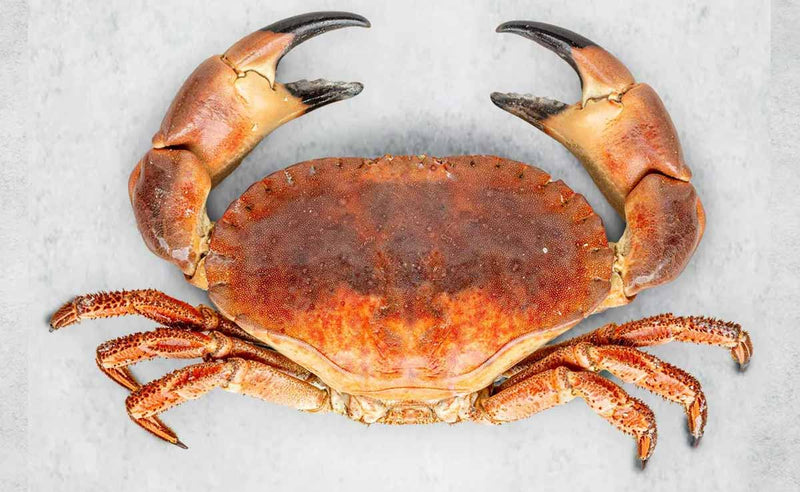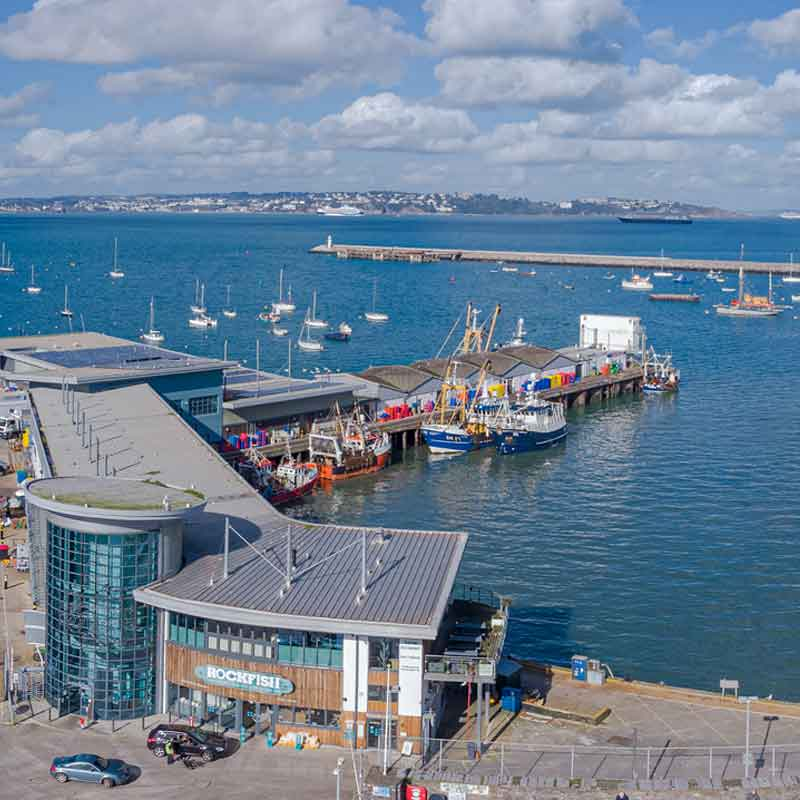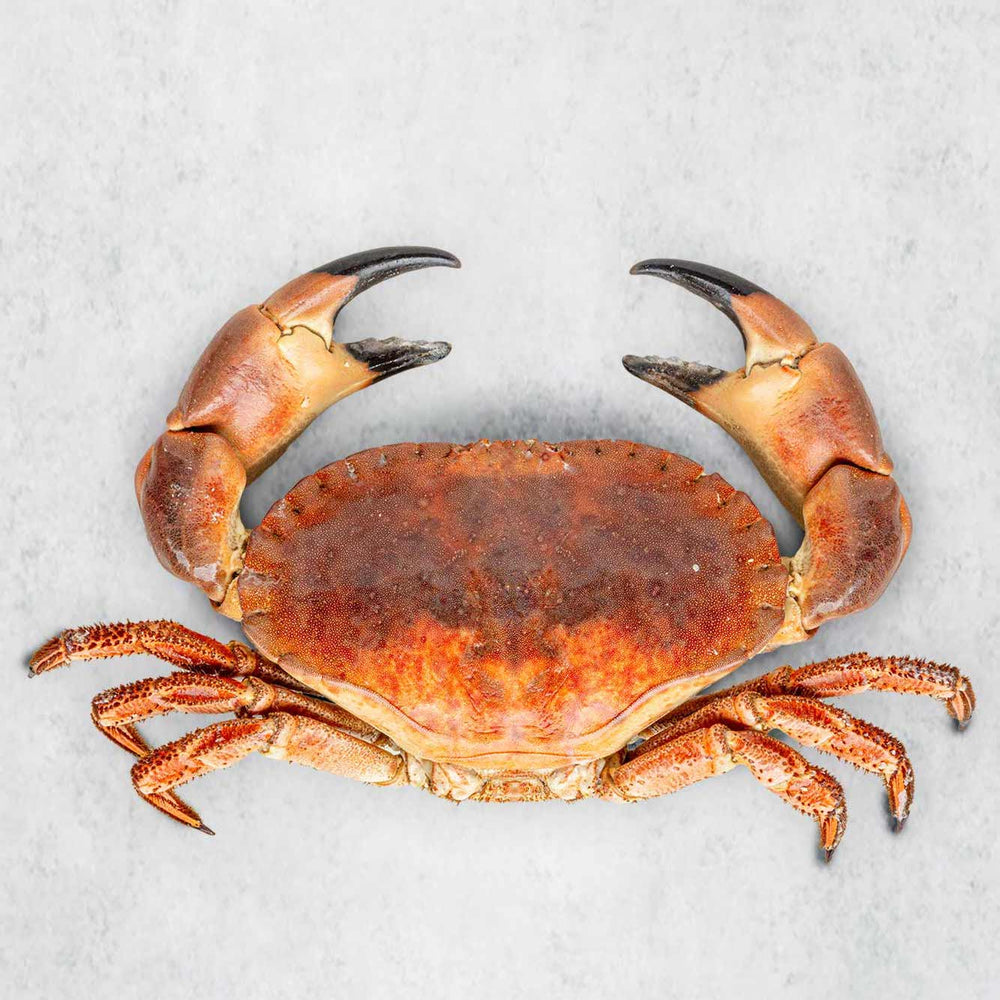Hot tips for perfect seafood barbecuing
There is something uniquely pure about cooking over flame. In a world where every household has more gadgets and appliances than the Doctor’s Tardis, the simplicity of fire cooking has a deeply romantic appeal.
When homo erectus first stood on two feet and walked from the plush African savannah to the craggy wave-worn shores, it was the taste of seafood over flame that was not only instrumental to its survival but also its development into modern human.
You could say it was the combination of seafood and fire that led to Leonardo da Vinci, Albert Einstein, or Marie Curie!
Despite this 2-million-year history of flame and fish cooking we thought it perhaps useful to weigh in with our own insights on this beloved summer pastime.
The Fuel
When it comes to barbecuing seafood, good fuel is essential. Fish is far more delicate as a protein than say a hefty lump of beef steak, or a pork chop. The flavours are subtle, but if cooked well, they can be immensely more complex.
Rather than considering charcoal as a fuel in your barbecue, it should be considered another ingredient. It is the most important ingredient in any barbecue, affecting everything from the taste and texture of your food to how it looks on the plate.
At our fine dining restaurant, the Seahorse in Dartmouth, it is our speciality to cook over open charcoal fires. We always use Big K’s Lumpwood Charcoal, they use sustainable hardwoods that have amazing high heat and long burning. The density of the wood means it burns red hot, cooking at a much higher temperature than you could get out of a briquette. Meanwhile, being 100% natural means the finished dish is left untarnished from any foul chemical aftertaste.
The Firelighter
It might seem overly pedantic but what you use to light your barbecue can also massively influence the flavour of your final dish.
We’ve all been there, hunched over a barrel of unlit charcoal and sticks trying to nurse scrunched lumps of newspaper alight with a box of soggy matches. While as a method this is quite good practice, it is hard work! Meaning given the choice we’ll often opt for petroleum-based firelighters, or lighter fluid as these are much easier to get going.
The problems associated with petroleum-based firelighters, or lighter fluid, are fairly obvious: you don’t want to be using substances riddled with carcinogens anywhere near your food.
Instead, we always use Flamers Natural Firelighters by Certainly Wood. They’re made in Britain out of wood wool which they dip into wax to provide a long burning fire starter – up to 15 minutes! You only ever need one Flamers Natural Firelighter to get your fire started and being made from untreated wood means you are not subjecting your food to any unwanted chemicals.
The barbecue
When it comes to barbecues there are horses for courses. A simple stack of rocks carefully organised on the beach with a cheap old rusty grill (or granny’s trusty cooling rack!) is often more than enough to char a few choice pieces of fresh seafood between dips in the sea.
Our hand-dived scallops, for example, come with their shells. We’ve done this as they make a perfect natural frying pan to cook your scallops in. Simply stick the shell straight on the grill with your scallop meat, a little butter, and garlic, wait five minutes and voilà! The results will blow your mind!
Sometimes, however, barbecuing needs to be taken a little more seriously. Let us introduce the Vulcanus grill.
Any barbecue named after the Roman God of Fire has got to stir a little child-like excitement even amongst the most serious of grillers.
Unique in its shape and build quality the Vulcanus grill looks somewhat like it was invented for Mad Max.
It’s made from a super special, high-quality steel, called COR-TEN. Originally designed for ship construction, COR-TEN is built to last, being resistant to any amount of snow, frost, or rain you can subject it to.
We’ll testament to its toughness, as we left our Vulcanus grill to fend for itself on the seaward side of the Brixham quay, where it was continually blasted by salt water and wind – a deadly combination – and yet the Vulcanus grill still looks and works as good as it did new.
For more hot tips...
If you couldn’t tell already, we love to barbecue. We love to talk about barbecues, write about barbecues, and sometimes in the shower you’ll even catch us singing about barbecues...
Which is why we’re such huge fans of BBQ magazine. Packed with helpful tips and tricks from renowned professionals, BBQ is a quarterly print magazine for everyone, whether you’re an enthusiast like us, a beginner or a seasoned pit master it’s a fabulous resource to learn about the ever-changing yet deeply primordial world of fire cooking.
Feeling hungry for seafood?
See our BBQ seafood collection and get ready to be grilling this summer.



